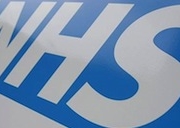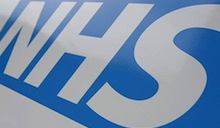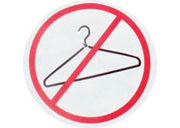Exposing the lack of accountability by NHS funded abortion providers
A Government consultation on the collection of standard statistics on abortion may seem like a pretty dry and uncontroversial topic. And indeed it mostly is. However there are two important – and more controversial issues – which the collection of these statistics raises.
One is the unexplained but very concerning discrepancy in the data for babies aborted for fetal disability. It seems that the numbers of babies aborted for fetal disability may be massively under reported. This means that the Department of Health is reporting on less than half of the abortions carried out for trisomy 13, 18 or 21. For more on this issue see here.
The second issue has received little publicity but is nonetheless equally concerning and needs highlighting.
Many abortions carried out in England and Wales are not properly recorded on women’s health records. There is no record of them for future hospital stays or other medical treatment and care, and there is no opportunity for any linkage research to be carried out to follow up the outcomes of abortion on these women.
With over 200,000 abortions per year, in the UK, this data is vitally important in order to test the UK evidence of sequelae from abortion.
The problem arises because many abortions commissioned outside of the NHS are undertaken without use of the NHS personal number. The commissioned providers of abortion in England (mainly BPAS and Marie Stopes) are not routinely required to record the patient’s NHS number, thus subsequent women’s health events cannot easily be linked backed to the abortion, and longitudinal research is almost impossible.
The result of this lack of data is that the outcomes of abortion, and possible side effects (eg. a possible subsequent premature birth, mental health problems, infertility or other trauma) cannot be easily tracked in England.
This puts England well behind the rest of Europe regarding this evidence, including behind Scotland. In Scotland abortions are largely undertaken within the NHS, so good record linkage is available.
In 1991 the NHS funded 9,197 abortions carried out by the private sector – just 10% of abortions in the private sector. However by 2010 the NHS funded 111,775 abortions carried out by the private sector – 93% of all abortions carried out by the private sector.
The growth of NHS-funded but privately-provided abortions entirely accounted for this massive increase.
By 2010 more NHS abortions were carried out in the private sector than within the NHS in England and Wales (59%). Hence the problem with data collection, as there is no routine record keeping of the NHS number for the large numbers of abortions taking place in the private sector.
The NHS number is an administrative identifier. NHS guidance on the number states that: ‘The key purpose of the NHS Number Standards is to improve patient safety by using the NHS Number to link patients to their records. The NHS Number should be present in all active patient records and determined as early as possible in the episode of care. The NHS Number is the only National Unique Patient Identifier in operation in the NHS at this time. The use of the NHS Number is fundamental to improving patient safety across all care settings.’
A fact sheet for NHS staff says that it is:
‘The key to sharing patient information safely, efficiently and accurately between NHS organisations and its partners; including wrist bands, patient records, referrals, correspondence and results across GP, community, secondary and social care for every care episode and pathway for each patient.’
‘An efficient and effective tool used to integrate health records and help clinicians form a complete set of clinical information for every patient.’
In contrast to abortion, nearly all other procedures commissioned by the NHS require the NHS number to be used for private procedures.
Of course, it could be argued that women undergoing abortion require complete confidentiality and privacy protection, and might be identified through the collection of data via the NHS number.
However, all good epidemiological longitudinal research is confidential, which would include research on the outcomes of abortion linkage with the female health record. Moreover, Finland has had a computerised abortion registry since 1983 and Denmark since 1973 – a combined total of 70 years data entry – with NO breaches of confidentiality.
Routine record keeping of the NHS number for each abortion should be put in place, as for any other female operation, in order to hold all providers accountable for the healthcare outcomes of their patients, to enable linkage of female patients to any other time in hospital in their life and to collect longitudinal studies of patient outcomes from abortion for routine research.
The problem is, we have the means to change this, but not the political will, while publicly-funded private abortion providers enjoy a stranglehold over the abortion industry.













Leave a Reply
Want to join the discussion?Feel free to contribute!